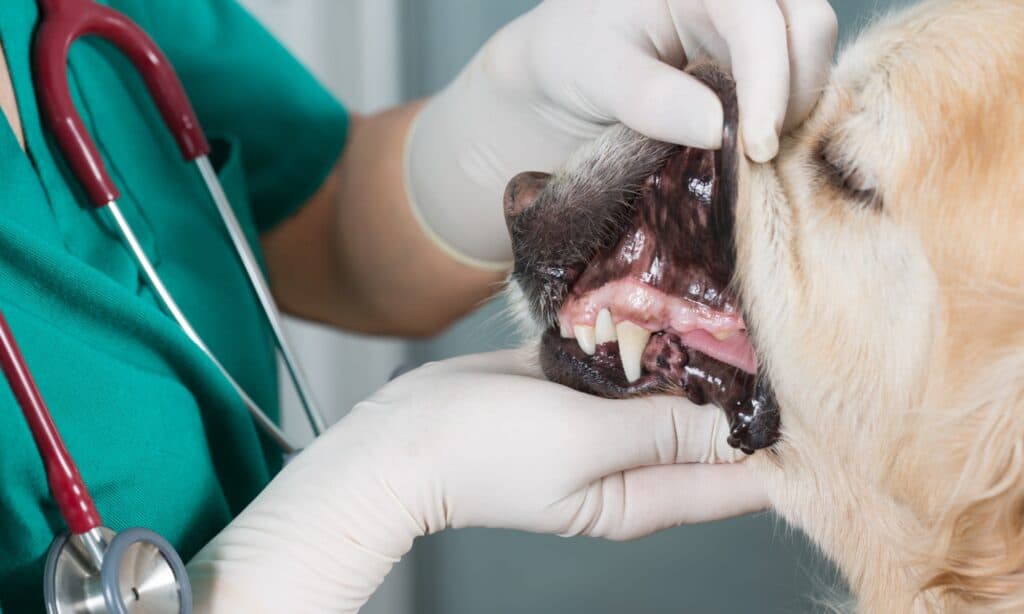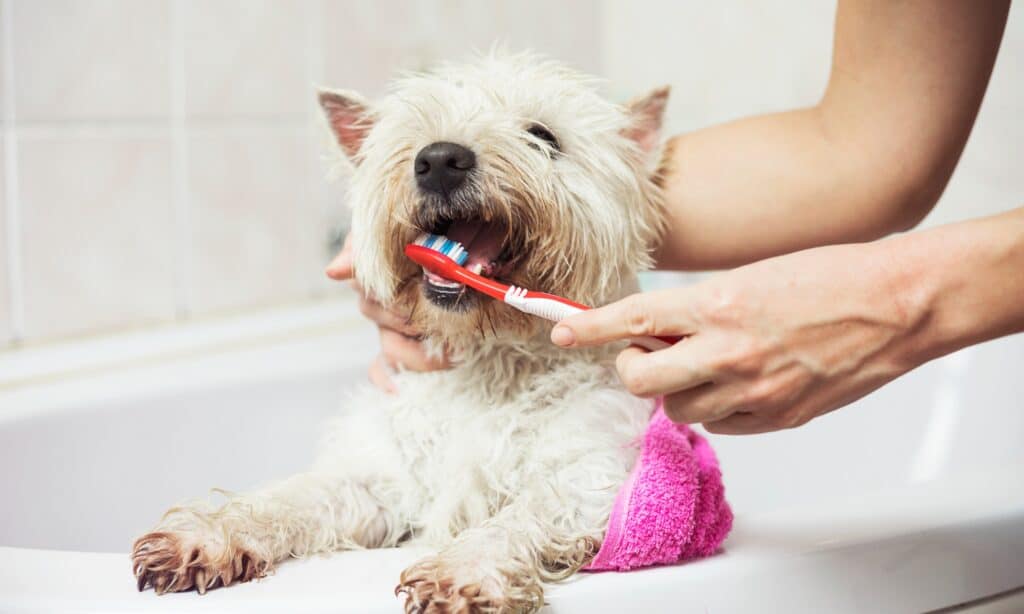We owe it to our pets to make them happy and healthy. Pets require regular dental care in addition to consistent vet visits and a balanced diet. Several pet parents overlook the importance of dental hygiene in their pets’ general health.
In fact, bad oral hygiene can result in gingivitis, mouth infections, and other health issues in the future. Fortunately, pet dental insurance is available from many pet health insurance companies. This ensures that your pet’s oral health is the priority it should be.
Below you’ll read everything there is to know about the best pet dental insurance companies available today! We’ve done the research so you don’t have to! There’s something for all pets, every budget, and every lifestyle. Keep on reading to find out more.
How Does Pet Dental Insurance Work?
A dental insurance plan will help cover the cost of some procedures if your dog visits the vet and needs dental care. These blueprints, on the other hand, are not available separately. Instead, pet health insurance firms include dental coverage in their standard policies. Certain policies as part of the base plan cover some dental operations. While others need an extra premium for coverage.
Most dog insurance policies ask that you pay an additional fee for basic treatment such as cleanings. You’ll have to pay extra every month. Depending on your dog’s circumstances, it may be worth it in the long run. Many plans require you to pay these dentistry fees upfront and then submit a case to be reimbursed. Please remember that, like human health insurance plans, pet plans often include co-pays and deductibles, as well as maximum payment restrictions.

Trupanion
Trupanion is at the top of our list because we’re always happy with their commitment to dental coverage for dogs and cats. The business is one of the few that brings the utmost care to cover anything for your pet’s dental health that may be deemed a disease or injury.
Trupanion will fund your medical bills if your pet suffers a veterinarian dental emergency. They don’t have a regular care plan. They’re working to expand their coverage to include hereditary disorders that might affect puppies. It’s essential, while your dogs are still young, to take advantage of the full benefit of Trupanion’s dental insurance coverage.
Trupanion will need your pet to undergo a necessary dental exam once per year in order to enroll. You must also implement all of your veterinarian’s recommendations and assume responsibility for your pet’s dental health.
Although Trupanion can be more expensive than other insurance companies, keep in mind that they have no payment restrictions and repay 90 percent of your vet fees. This is a feature that isn’t easy to come by.
Embrace
Embrace is excellent at treating many types of dental problems, from gingivitis and gum disease to periodontitis and face and jaw injuries. This pet insurance company, on the other hand, has a $1,000 yearly cap on dental coverage. This means that if you go above that amount, you won’t be covered for the balance of your pet dental services until the next policy renewal date.
Keeping a good oral condition for your pets is simple with Embrace. This is because they offer multiple fantastic preventative care plans with yearly dental coverage of $250, $450, or $650. Dental cleanings, nutritional vitamins, dental chews, pet-specific toothbrushes and toothpaste, and yearly dental check-ups are all covered under these programs.
An Embrace dental insurance coverage also comes with disappearing deductibles and an accident-only plan, among other features. They will even reinstall previously classed as cured pre-existing illnesses.
Petplan
Petplan makes every effort to nurture pets as if they were members of the family. They provide a wide range of dental coverage choices, including covering oral disorders and dental injuries. What we like best regarding Petplan is that they will treat pre-existing diseases provided your pet has not shown signs of the initially diagnosed sickness for a full year.
To enroll in a Petplan insurance coverage, you must have your pet undergo and pay for a regular veterinarian checkup. If it’s not part of the standard plan, your pet will also need a dental exam. To be eligible for coverage, your pet must take this assessment yearly.
Nationwide
Nationwide could be the appropriate choice for you if you travel a lot with your pet. They provide accident and sickness dental insurance for your animals no matter where you are on the planet!
Furthermore, if you have bunnies, hedgehogs, guinea pigs, gerbils, rats, or ferrets, Nationwide seems to be the only pet insurance company that covers their dental needs. Despite the fact that Nationwide does not cover enamel hypoplasia, aesthetic dental operations, or the treatment of infant’s teeth, they are one of the most affordable and reliable insurers available.
PetFirst
If you’re looking for a low-cost dentistry plan that covers the majority of your pet’s oral care, PetFirst is a wonderful option. To make the situation even more reasonable, they provide a variety of discounts.
Only if the problem needing treatment is the consequence of an accident is tooth extraction covered by PetFirst. Crowns and root canal therapy are often part of endodontic therapy. They may choose from three payment amounts: $2,000, $5,000, or $10,000.
You may also choose from one of five wellness plans, which include dental cleanings worth $50, $100, or $150 in vet expenses.
Their primary insurance policy and the additional wellness plan do not cover toothpaste, toothbrushes, mouth rinse, or dental chews.
Healthy Paws
Healthy Paws is another great choice in the field of dental insurance policies. They provide immediate payment of vet bills, quick claim processing, and limitless coverage. Although Healthy Paws provides dental accident and sickness insurance, they do not offer a wellness plan. Thus routine dental cleanings are not covered.
To ensure that you are always qualified for Healthy Paws’ dental insurance, you should heed your veterinarian’s recommendations and use preventative treatments and products to maintain your dogs’ oral health. Healthy Paws is fantastic because they give to animal rescue and care groups on a monthly basis and have assisted thousands of homeless critters to find homes.
Pets Best
Pets Best is among the most comprehensive health insurers, involving a broad range of oral and dental issues. Periodontal disease is part of Pets Best plans, including surgical removal and endodontic operations for dog and feline teeth.
If your companion has periodontitis prior to joining Pets Best, unfortunately, they have to be treated for it before the accompanying coverage becomes accessible. You must enroll in Pets Best before your pet becomes six months old to be reimbursed for surgery and extraction of baby teeth, dental hypoplasia, obstructed teeth, and dentigerous cysts.
Pets Best does not cover misalignments, dental prophylaxis, oral chews, or dental vitamins. Finally, if you choose a Pets Best wellness plan, you will be covered for teeth cleanings with a $150 service value.
ASPCA
Another well-known pet insurer is the American Society for the Prevention of Cruelty to Animals (ASPCA). Gum disease, periodontitis, and oral cancer are among the ailments for which they provide full coverage. Accident-related wounds to the face and jaw are also covered by the ASPCA’s veterinarian care list.
Furthermore, the organization created a cost-effective wellness pet plan that includes dental cleaning as well as other perks aimed at improving your pet’s overall health.
The ASPCA’s approach to pre-existing conditions is one of its strongest advantages.
Your pet merely has to be free of symptoms for six months for a previously documented ailment to be added to their covered list. The ASPCA does not cover cosmetic operations, orthodontics, or endodontic treatments such as root canals, planing, crowns, veneers, inlays, or restorations.
Hartville
You may receive limitless dental health care for your pet with Hartville.
Apart from dental extractions, Hartville will cover any dental treatment that is considered essential as a result of an illness or accident.
Cosmetic treatments, endodontic procedures, and dental regular cleanings are the only procedures that are not included in normal dental care. If you want to include dental cleanings, you may buy one of Hartville’s two wellness plans, which will contribute $100 or $150 toward it on an annual basis.
Figo
Non-routine dental procedures for your companion can be covered by Figo’s pet insurance. They will compensate you for any veterinarian operations required as a consequence of an accident to treat harm to your pet’s oral health and teeth.
For example, if the bottom and top feline teeth are injured in an accident, the provider will take care of the cost of extractions and rebuilding. Figo, on the other hand, does not include any disease-related emergency or sickness treatments. They also don’t have a wellness plan, which normally covers the cost of pet teeth cleaning.
Choosing the Best Pet Dental Insurance
There are a few things to consider while selecting pet insurance coverage. Determine what kind of coverage your pet requires first. You may not need full coverage if your companion is healthy and unlikely to require much medical attention. If your pet has health issues or is likely to have an accident, a more complete program may be beneficial.
When selecting an insurance plan, keep your budget in mind. Because pet insurance can be costly, be sure you can afford the monthly charge. You may also consider your copay or deductible and ensure that you are okay with it.
Finally, before you buy any insurance coverage, make sure you read the tiny print. This will assist you in determining what is and is not acceptable.

How Often Do Pets Need Dental Care?
If your dog does not have any crises or accidents, an annual dental cleaning is typically sufficient. If you wish, you can send your animal for regular cleaning every six months if the dentist or vet uses anesthesia-free dental treatment. Dental sickness or accidents can occur at any moment, which is why having a dental plan is a good idea.
Brushing your dog’s teeth, feeding him the right food, and giving him chews should all be done on a daily basis. We really like to provide dental chews to our pets. Dental disease prevention begins at home. Vet costs might skyrocket if you don’t actively engage in basic dental care. This is because oral illness can lead to a variety of other disorders, including cardiovascular disease, kidney problems, and liver damage.
What is the Cost of Pet Dental Insurance?
Pet health insurance costs vary based on the type of insurance you select, the deductible you pick, the payment alternatives you choose, and the age and breed of your pet. For instance, a low-cost accident-only plan for a young, healthy cat may be as affordable as $15 a month. A complete policy for an elderly dog could run $100 per month. The animal’s breed, age, and location play a huge role in the price of the policy.
Thank you for reading! Have some feedback for us? Contact the AZ Animals editorial team.




